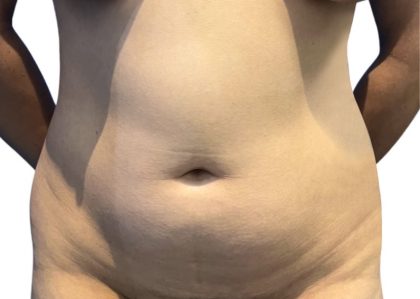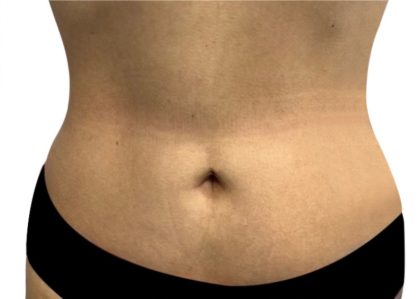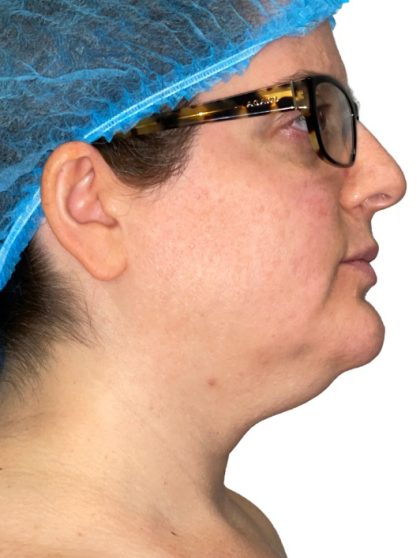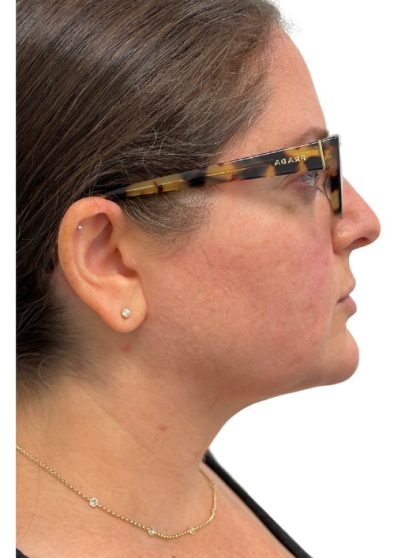Liposuction
Consultations offered at our seven convenient locations in Manhattan New York City, Princeton New Jersey, Scarsdale, Woodbury Long Island, Southampton, Smithtown and Boca Raton, Florida

Liposuction is a surgical option for patients seeking permanent elimination of stubborn body fat that will not respond to diet and exercise. Our experienced team of board-certified plastic surgeons is renowned for providing the best liposuction in Southampton, Smithtown, Woodbury, Scarsdale, New York City, Princeton, and Boca Raton. and has made it possible for countless men and women to enjoy thinner, shapelier body contours with this popular cosmetic surgery.
Contents
Before and After Photos
What Is Liposuction?
Liposuction is a surgical procedure that removes stubborn fat deposits that may be resistant to diet and exercise. At Dr. Greenberg’s practice, we offer a highly advanced and customized approach to liposuction. Our experienced team uses a combination of tumescent, power-assisted, and ultrasound-assisted liposuction techniques to ensure optimal results.
During the procedure, Dr. Greenberg will first inject the treatment area with a specialized solution that helps numb the surrounding tissues and increase the size of the fat cells. It allows him to access and extract the targeted fat cells with greater ease. He then uses ultrasound technology and a cannula with a vibrating tip to break down and dislodge these unwanted fat cells before removing them from the body.
Besides these highly effective techniques, we also offer SmartLipoTM, another liposuction method that uses laser technology to target and eliminates unwanted fat. This method provides highly precise results and a faster recovery time for patients.
At our practice, we understand that each patient is unique and may have different needs and goals. We will work with you to develop a customized treatment plan that is tailored to your specific needs and will help you achieve your desired results. Our team is dedicated to providing compassionate care and support through every step of your liposuction journey.
Liposuction, or lipoplasty, is performed to remove unwanted fat cells from the body. While healthy eating habits and regular exercise can go a long way toward creating slimmer body contours, some patients find it impossible to lose inches in some regions of the body.
Often, adipose cells that resist traditional fat reduction methods result from factors like genetics or hormonal changes. If irregular and excessive fat build-ups occur only in the lower body, lipedema may be the cause. In each of these cases, a liposuction procedure may be the only way for a patient to achieve their desired physique.
We can perform liposuction to eliminate stubborn fat from common problem areas, including the:
- Abdomen
- Hips
- Thighs
- Buttocks
- Back
- Neck
- Arms
- Legs
What Types of Liposuction are Available at Our Practice?
Our board-certified plastic surgeons, Stephen T. Greenberg, MD, FACS; Jason M. Weissler, MD; Stephanie A. Cooper, MD, are trained in several liposuction techniques, so they can provide highly customized treatments that cater to each patient’s distinct needs.
Based on the target area, quantity of fat, and patient’s desired outcome, your surgeon will utilize one or more of the following options:
- Tumescent liposuction – Tumescent lipo involves using a sterile solution to loosen fat cells before they are removed.
- External ultrasound-assisted liposuction (EUAL) – With this technique, a specialized EUAL device is placed above the skin to deliver ultrasonic vibrations into the underlying tissues. EUAL is often used in combination with tumescent lipo.
- Power-assisted liposuction (PAL) – Power-assisted liposuction helps preserve non-adipose tissue by gently vibrating the cannula, preventing incidental trauma to surrounding tissues (which often occurs with manual cannula manipulation).
- SmartLipo – SmartLipo features a laser that can differentiate fat cells from other tissue. By being literally laser-focused on fat cells, the surgeon can ensure advanced accuracy. In addition, the laser seals off blood vessels, often resulting in less bleeding and bruising later on.
We frequently combine tumescent, EUAL, and PAL, as it allows a greater degree of precision while supporting an expedient recovery. With this approach, a tumescent solution is injected to prepare the fat cells and create controlled swelling. While the EUAL device is in place and in use, power-assisted liposuction is then used to remove fat cells.
Ideal Candidate
Many people with undesired pockets of fat are excellent candidates for liposuction. Those looking for lipedema options commonly turn to this remedy as well. During your consultation at Greenberg Cosmetic Surgery and Dermatology, your surgeon will consider your medical history and treatment goals to determine the best approach for you.
Since liposuction is a body contouring procedure—not a weight loss treatment—patients who are overweight or obese will not be considered suitable candidates until they have reached a healthy weight. Liposuction candidates should be near their ideal body weight and must be committed to a lifestyle that allows them to maintain a healthy weight.
While this surgery is often used in conjunction with other procedures like tummy tucks, it cannot be used to eliminate excess skin on its own. Patients should have firm, elastic skin in the treatment area to achieve aesthetic results.
Lipedema Treatment
Liposuction is routinely performed as a lipedema procedure to extract excess fat from the legs, buttocks, and/or upper arms. While patients are often encouraged to try non-surgical interventions like incorporating more heart-healthy foods and utilizing cardio-focused workouts for fat reduction first, it is often the case that liposuction is the most effective lipedema treatment option.
Liposuction for lipedema often involves tumescent liposuction, but your surgeon can determine a more precise strategy during your consultation.
Preparation
To ensure your well-being, Dr. Greenberg may require you to undergo pre-op lab tests or medical evaluations. Preparing for lipo can also involve stopping or temporarily adjusting the dosage of certain medications for several days prior to your fat removal surgery. If you smoke, you must stop for six weeks before and after surgery.
Expectations
Liposuction begins with either local or general anesthesia, depending on the procedure’s extent and patient preference. Small incisions are then made in each treatment area, so a cannula can be inserted.
Using the predetermined lipo technique(s) discussed in your consultation, Dr. Greenberg can then loosen and/or liquify unwanted adipose cells, so they can be removed from the body using a medical suction device.
During The Procedure
Liposuction begins with either local or general anesthesia, depending on the procedure’s extent and patient preference. Small incisions are then made in each treatment area so that a cannula can be inserted.
Using the predetermined lipo technique(s) discussed in your consultation, your surgeon can then loosen and/or liquify unwanted adipose cells, so they can be removed from the body using a medical suction device.
Post Procedure
During recovery, you’ll have bandages over the incision sites. Patients are also given a compression garment to wear for a month (except when showering) to help the skin retract to fit their new, slender shape. Patients can anticipate minor swelling and bruising in the initial days of lipo recovery.
You will spend the first two to three hours after your surgery in our on-site recovery room. Once you have your surgeon’s approval to check out, a friend or family member can drive you home. You will also need someone to stay in your home with you for the next day or two, so you can rest and minimize stress and strain at the treatment site.
About a week of downtime can be expected, so plan to take time off work. You will also be instructed to avoid intense physical activities for several weeks until adequate healing progress has been made.
Cost
Liposuction is an individualized procedure, and so is the cost. The price depends on which techniques are used, which (and how many) areas of the body are targeted, the extent of fat removal needed, and the patient’s overall goals.
Determining Liposuction Cost
When contemplating the decision to undergo liposuction, it is natural to have questions regarding the liposuction cost. It is important to note that the total cost of liposuction can vary depending on a multitude of factors. These include the treatment area, the specific type of liposuction technique used, the extent of the procedure, the qualification of the surgeon, and other pertinent considerations.
We advise potential patients to view liposuction as a valuable investment in their well-being, as it can provide many benefits, including an improved appearance, enhanced self-confidence, and improved overall health. Additionally, the long-lasting results of this plastic surgery can lead to a boost in personal and professional opportunities, making liposuction an investment in your future.
It is vital to choose a highly skilled and experienced plastic surgeon for your liposuction procedure to ensure the best possible outcome. Such a surgeon will provide you with personalized care and a customized treatment plan that aligns with your specific needs and goals. Dr. Stephen Greenberg, in Manhattan, is a top-tier plastic surgeon with a wealth of experience and a reputation for excellence in the field of cosmetic surgery.
To get more detailed information about the cost of liposuction and to schedule a consultation with Dr. Greenberg, board certified plastic surgeon, we encourage you to reach out to our team without delay. We are a team of experts committed to helping you achieve your desired results and answering any questions you may have regarding the procedure.
Investing in yourself through liposuction can provide long-lasting physical and emotional benefits, and our team is here to support you through every step of the process.
Cost Calculation
Liposuction is an excellent solution for those looking to remove stubborn pockets of fat that have not responded to diet and exercise. However, the cost of the procedure may be a concern for many people considering it. On average, the liposuction cost in New York varies between $1,000 and $11,000. This average is wide because multiple factors affect the cost. Let us explain how liposuction cost is calculated and what factors contribute to the final price.
The treatment area
The area that requires treatment is one of the main factors determining the cost of liposuction. Larger areas, such as the abdomen or thighs, will require more time and effort from the surgeon and therefore may cost more. However, smaller areas like the chin or neck may also carry a slightly higher price because of the high degree of skill and expertise required for these delicate areas. It’s important to note that treatment areas are often interconnected, so addressing multiple areas can have a significant impact on the overall cost.
Scope of treatment
The scope of treatment also plays a crucial role in determining the cost of liposuction. Simply put, the more areas you want to treat, the more expensive the procedure will be. The amount of fat removed is also directly proportional to the price tag. Larger volume procedures require more time and effort from the surgeon, leading to a higher cost. On the other hand, if you’re only targeting a small area, you can expect a lower final cost.
The type of liposuction you select
There are several types of liposuctions, and the technique used can impact the final cost. For example, laser-assisted procedures like SmartLipo™ are often more expensive than traditional methods. This is because the laser technology used in SmartLipo™ provides additional benefits like faster recovery times and tighter skin. However, it’s important to note that the type of liposuction used will depend on your individual needs and goals, and our surgeon Dr. Greenberg will recommend the best option for you.
Anesthesia
Liposuction is performed under general anesthesia, which can impact the final liposuction cost. The use of anesthesia requires the presence of an anesthesiologist, which is an additional cost to consider. Surgical facility or anesthesia fees hospital can also be applied.
Additional Plastic Surgery Procedures
Added fees can apply if you decide to add other plastic surgery procedures to your liposuction, such as breast reduction, tummy tucks, etc.
Benefits
If you are considering liposuction, it is essential to understand the benefits that this procedure can offer.
- Liposuction can be an effective way to remove stubborn fat deposits that have not responded to diet and exercise.
- This surgical technique can help you achieve a firmer, better-defined figure, a more youthful appearance, and increased self-confidence.
However, the key to achieving these outcomes is to choose an experienced plastic surgeon with a track record of success. - One of the main benefits of liposuction is its ability to target specific areas of the body that have excess fat. This can be an effective way to create a more balanced, proportionate figure.
- By removing fat from areas such as the thighs, hips, abdomen, or arms, you can achieve a more contoured appearance that enhances your natural shape.
- Liposuction can also help define certain features, such as the jawline or cheekbones, giving you a more chiseled and youthful appearance.
Contact
Contact Greenberg Cosmetic Surgery and Dermatology today if you are ready to start your journey to achieving your dream body. We’ll assist you in scheduling an initial consultation with one of our highly qualified plastic surgeons to discuss your medical history and map out a treatment plan that will help you reach your goals!
FAQs
ARE THERE ANY ALTERNATIVES TO LIPOSUCTION FOR FAT REDUCTION?
Depending on the specific needs of each patient, liposuction may be the most effective method for fat reduction. For stubborn pockets of fat that are resistant to diet and exercise, there are alternatives to liposuction. Non-invasive procedures such as CoolSculpting use cryolipolysis to freeze and eliminate fat cells. Radiofrequency (RF) and High-Intensity Focused Electromagnetic (HIFEM) technology burn fat and build muscle and may be used simultaneously. Laser fat reduction and ultrasound therapy are other non-surgical options that target and break down fat cells. Additionally, injection-based treatments like Kybella involve injecting a substance to dissolve fat in specific areas.
HOW DO I CHOOSE A QUALIFIED AND EXPERIENCED PLASTIC SURGEON FOR LIPOSUCTION?
To select a qualified plastic surgeon for liposuction, first, research their credentials and certifications to ensure they are board-certified in plastic surgery. Look for surgeons with extensive experience specifically in performing liposuction procedures. Review before-and-after photos of their previous patients to assess their results and aesthetic skills. Finally, schedule a consultation to discuss your goals, concerns, and the surgeon’s approach to the procedure before making a decision.
HOW LONG CAN LIPOSUCTION LAST?
The results of liposuction can be long-lasting, provided that the individual maintains a stable weight and healthy lifestyle after the procedure. While liposuction permanently removes fat cells from treated areas, factors such as aging and changes in weight can affect the appearance of treated areas over time. Adhering to a balanced diet, regular exercise routine, and maintaining overall health can help sustain the benefits of liposuction for years to come.
HOW MUCH WEIGHT CAN YOU LOSE WITH LIPOSUCTION?
Liposuction is not intended as a weight loss procedure but rather as a body contouring treatment. The amount of weight lost with liposuction varies depending on the individual’s body composition and the volume of fat removed. Typically, liposuction results in the removal of several pounds of fat, but the emphasis is on reshaping and sculpting specific areas rather than significant weight reduction. That being said, on average, patients generally experience a fat loss of about 5 pounds following the procedure. According to FDA guidelines, liposuction is approved to remove up to 11 pounds of fat, equivalent to approximately five liters.
DOES BELLY FAT REGROW AFTER LIPOSUCTION?
While liposuction permanently removes fat cells from treated areas, it’s possible for remaining fat cells to expand if weight is gained after the procedure. Thus, if an individual gains weight post-liposuction, remaining fat cells in untreated areas and any remaining fat cells in treated areas can enlarge, potentially leading to an increase in belly fat. Maintaining a healthy lifestyle, including a balanced diet and regular exercise, is crucial to prevent fat regain and maintain the results of liposuction over time. Understanding that liposuction is not a substitute for healthy habits can help individuals manage their expectations and sustain their desired outcomes.






